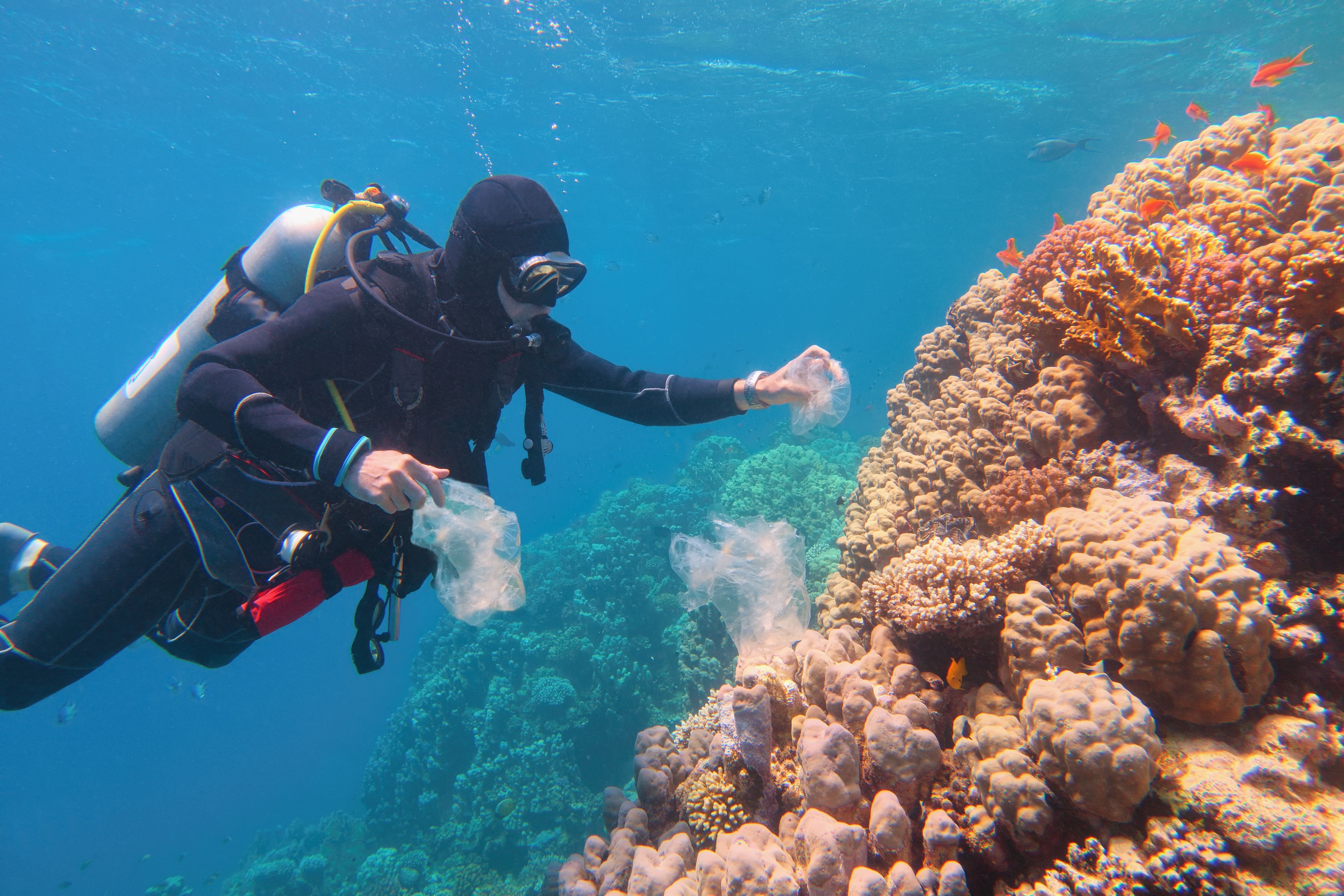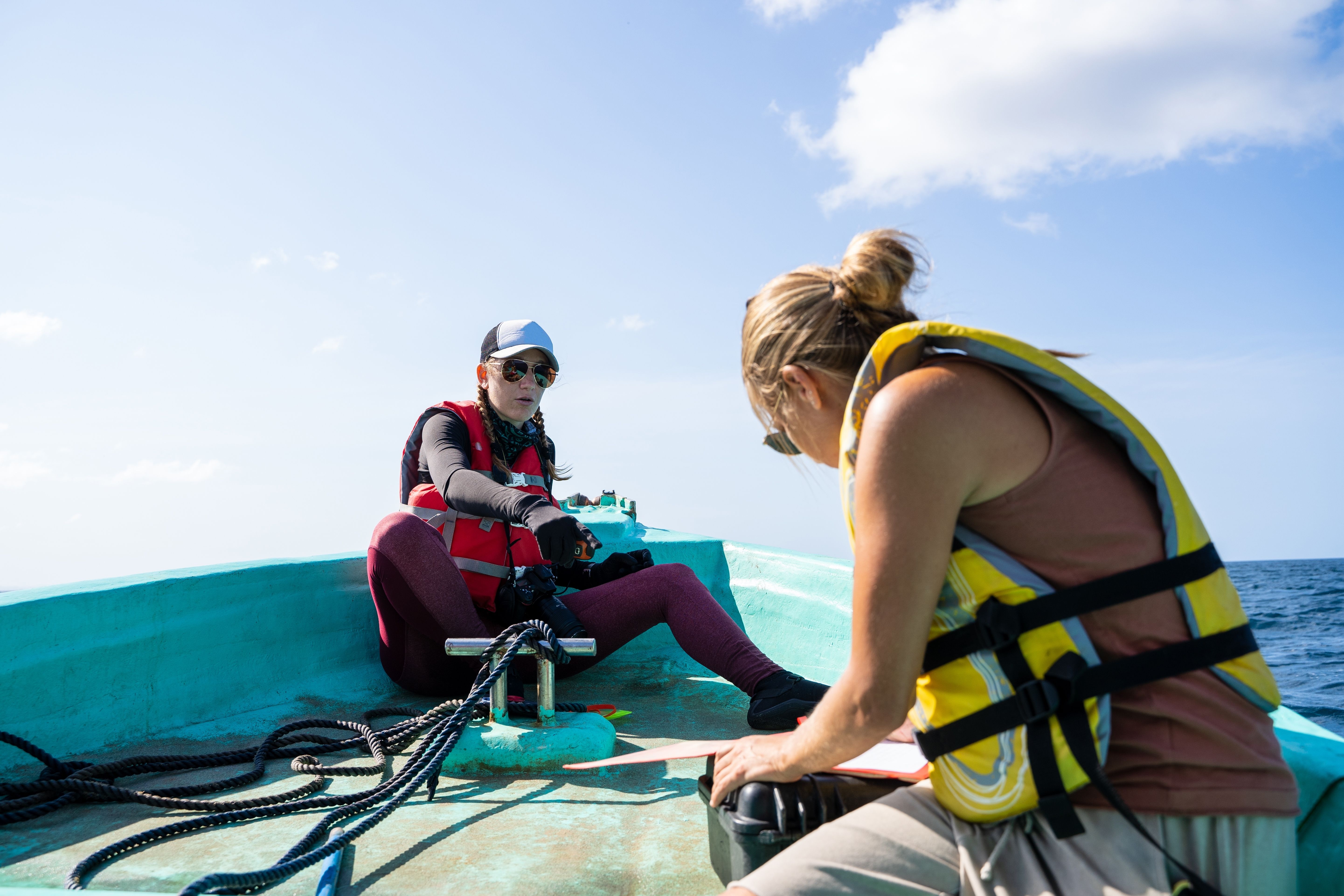An Interview with Philip Bishop, Head of Commercial Development at the National Oceanography Centre
What is the purpose of the National Oceanography Centre?
"The National Oceanography Centre (NOC) is dedicated to advancing our understanding of the ocean and its critical role in supporting life on Earth. As the UK’s leading institution for ocean research, NOC seeks to address some of the world’s most pressing environmental issues, including climate change, biodiversity loss and sustainable resource management. Through research, innovation, and technological advancement, NOC generates crucial insights into oceanic processes, the impacts of human activity on marine environments, and the ways we can work to mitigate these effects. Its mission is to provide accurate, evidence-based information that informs public policy, shapes conservation strategies, and supports sustainable ocean management.
NOC also operates as a key data provider, gathering and sharing marine data that can be used globally by researchers, industry, governments, and conservation organisations to better understand and protect the world’s oceans."
Why is academic research so important for ocean conservation?
"Academic research serves as the backbone of ocean conservation efforts, offering a foundation on which effective policies and conservation actions can be built. Scientific studies provide the data and insights necessary to understand marine ecosystems, track changes over time and identify areas at risk. Researchers analyse everything from the behaviours of marine species to the dynamics of ocean currents and chemical changes within the water. Such work is essential to identify and mitigate the effects of overfishing, pollution and climate change on the marine environment. Without robust academic research, efforts to protect and restore ocean habitats would be based more on assumptions than on data, making them less effective and potentially causing unintended harm. In addition, research enables early detection of emerging issues and helps predict future challenges, allowing conservation efforts to be proactive rather than reactive.
Another fundamental point is that academic research is objective. It isn’t driven by commercial or government bias. It provides an objective evidence base from which decisions can be drawn. By investing in academic research, we’re ensuring that the solutions developed are grounded in science, improving their chances of success."

What are the challenges of bringing significant funding into ocean research, and the difficulties with directing it into areas for maximum impact?
"Funding for ocean research is notoriously challenging to secure, partly because the ocean’s health, while crucial, is often out of sight and therefore less visible to the general public and policymakers. This invisibility makes it harder to communicate the urgency of ocean conservation compared to more immediately apparent environmental issues like deforestation or air pollution. Securing significant funding requires conveying the importance of ocean health in a way that resonates with various stakeholders, including governments, private sector investors, and philanthropic organisations. I’m an ardent advocate for effective communication as a means to help solve our ocean and climate challenges. We need to involve all stakeholders, and you don’t get that just by talking to one group of people.
Traditional research grant funding has been steadily declining over the past decade. Grants are becoming more competitive as a result, and even if you do win it, it will also typically only cover up to 80% of what it actually costs the institute to deliver the science. That’s why bringing in private finance is absolutely crucial if objective research is to continue.
The next challenge lies in allocating it effectively. The vastness and complexity of marine ecosystems mean that there are many competing priorities. From studying biodiversity, which impacts ecosystem health and the livelihood of coastal communities, to monitoring carbon dioxide absorption which has fundamental knock-on effects on global weather systems, identifying which areas of research will yield the highest impact can be difficult, as issues are often interconnected. Achieving maximum impact requires a nuanced approach that balances short-term needs with long-term solutions."
Why is collaboration and partnership so important?
"Collaboration and partnership are essential due to the sheer scale and complexity of the issues involved regarding the ocean. Oceans cover more than 70% of the Earth's surface and are interconnected systems that transcend national boundaries. Addressing marine issues effectively requires a united global effort that includes governments, academic institutions, non-governmental organisations, and the private sector. By working together, these diverse stakeholders can combine resources, share knowledge, and develop comprehensive solutions that are both effective and scalable.
Partnerships allow for a more holistic approach, where expertise from multiple disciplines can be integrated to address the interconnected nature of ocean conservation challenges. Furthermore, collaboration fosters innovation. For instance, the development of new marine technologies, such as Autonomous Underwater Vehicles or advanced tracking systems, often relies on partnerships between academic institutions, private companies and government research programmes. Joint efforts also allow for greater financial leverage; by pooling resources, organisations can undertake more ambitious projects than they could individually, increasing their capacity to effect meaningful change.
By partnering with governmental, academic and industrial organisations, we are able to maximise the impact of our world-leading marine expertise."

Why is the National Oceanography Centre well positioned to do this?
"At NOC, we’re uniquely equipped to lead in the field of ocean research and technology due to our extensive expertise, world-class research infrastructure, and established role as an independent global scientific authority. We’re deeply entrenched across all ocean industries at all levels, and our unrivalled knowledge is available for partners and collaborators to use to solve their own challenges and issues. This position as the perfect convener to link industry, academia and governments, along with our objectivity means that NOC offers unmatched credibility as a partner.
Collaborating with us brings exposure to and involvement with the front line of ocean science and technology development, alignment with one of the world’s leading marine sensor and technology developers as well as access to a pool of specialised equipment and testing facilities. The BORA Blue Ocean Research Alliance®, an innovative partnership between NOC and Subsea7, is one example of how research institutions and private businesses can work together to deliver new marine research and accelerate technology developments on a global scale. One innovation of this partnership is the BORAbox®. This is a sensor box that is fitted to Subsea7’s Remote Operated Vehicles (ROVs) to measure Essential Ocean Variables (EOVs). BORAbox® is currently being used to monitor ocean acidity levels using the latest lab-on-chip sensor technology and gathers scientific data when Subsea7 is conducting its usual work in the ocean, enhancing the global reach of marine observation. It’s a great example of how different stakeholders can come together to solve global challenges.
By leveraging our resources, expertise, and partnerships, NOC is well-positioned to make a lasting impact on the health of the world’s oceans, supporting efforts to mitigate climate change, protect biodiversity, and promote sustainable marine resource use."
What is the National Oceanography Centre currently doing to encourage ocean innovation?
"Things are moving quickly in this space at NOC. For example, we have just launched Ocean Catalyst, the UK’s only accelerator programme dedicated to ocean technology. The programme will welcome its first cohort in April 2025 and caters specifically to early-stage start-ups in the marine industries. By offering comprehensive resources—including skill-building workshops, mentoring, and access to NOC’s advanced marine facilities—the programme will enable innovators to tackle the complex challenges of commercialising and scaling marine technology. It will also offer participants an opportunity to pitch to a panel of investors for Proof of Concept funding, which is a vital step for many start-ups.
We also have a partnership with Ploughshare to help us discover, liberate, and scale intellectual property into multiple industries. We want our technologies out there in the real world, delivering real-world impact, not just kept to ourselves.
Our Digital Ocean team was established to better utilise digital innovation to help us understand the ocean. A key objective is to enhance the automation of the entire data lifecycle—from collection and quality control to publication and archiving—while ensuring our data is more accessible and valuable to other organisations.
NOC is constantly evolving to maintain its standing as the hub of ocean innovation and to utilise its position as the convener of key stakeholders in driving research and innovation in the ocean space."

Philip Bishop, Head of Commercial Development, National Oceanography Centre
NOC's Philip Bishop is an oceanographer with significant technical and commercial experience across a wide range of marine industries. At the National Oceanography Centre, he’s responsible for the commercial delivery and expansion of new technical and scientific services, as well as overseeing technology transfer operations to ensure that impacts from innovation are maximised.
Phil will join us at Day One of Innovation Zero World 2025's Nature, Land & Sea Forum, speaking during the panel session "Strategies for Unlocking Ocean Innovation".


